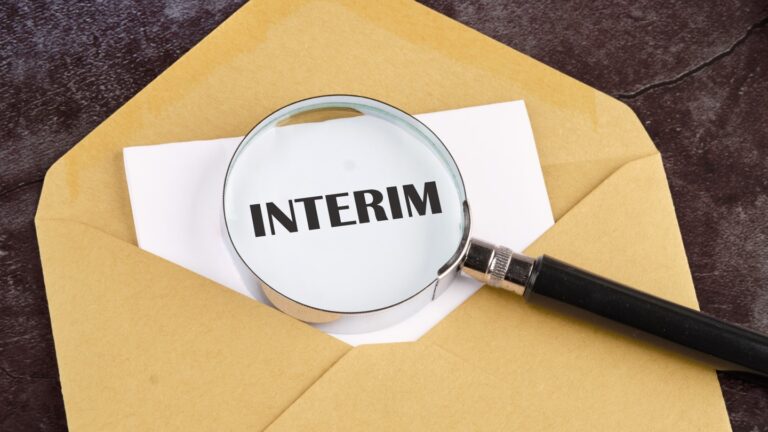Caring for Carers: What you need to know about the Legal Process for your loved one
When James Cracknell and Beverly Turner announced the end of their marriage, much was said about the role that his brain injury had in their separation. In fact, both separately went on to attribute the brain injury as a major source of contention in their marriage, discussing how this had changed James’ personality.
Brain injury is devastating and nothing in life can prepare someone for the changes it brings and the journey of recovery ahead. It also doesn’t affect just the survivor. Loved ones caring for brain injury survivors are part of the puzzle and are also forced to come to terms with the changes forced upon them. Whilst trying to juggle their own lives with the sudden need to care for someone who previously was independent, it’s important that carers are given time and support to deal with these life-changing events.
As part of our series focusing on carers of those with a brain injury, I discuss some of the things to consider when deciding upon legal action for your loved one.
1. What is the point of a legal claim?
Undoubtedly, taking legal action is a significant step for anyone. Whilst the length of a legal claim will depend completely on the case’s individual details, it would be fair to say that the majority of successful legal claims relating to brain injury last around two years or longer. It’s therefore important to know what the purpose of this process is and whether it’s something your loved one will want to pursue.
The purpose of a legal claim is monetary compensation, the hope of an apology and explanation from the Defendant. The purpose of this is to try to put the Claimant (the person pursuing the legal claim) back in the position they would have been in had the accident/ negligence not happened, as much as is possible to do so.
The magnitude of a brain injury is usually so large that compensation is required by the Claimant to be able to support them with their new injuries and limitations. This is a question of having money to meet their basic needs and financial losses, not a sum of money as a conciliatory prize.
So how much compensation is your loved one likely to receive from their claim? This will depend entirely upon the extent of injuries and financial losses they suffered as a result of negligence/the accident and the impact this has had on their life. In a legal claim for someone who has survived a brain injury, compensation is made up of two components:
- General damages: this is a term for compensation provided for the injuries, pain, suffering and loss of amenity caused by the negligence/accident. This will include things like scarring, loss of mobility, cognitive impairments, incontinence and length of time as an inpatient.
- Special damages: this is a term for compensation provided for financial losses which have happened, or will happen, because of the negligence/accident. This will include things like loss of earnings, care needs (even if these are provided by loved ones who are not being paid), equipment and assistive technology, adaptations to the home, travel and medical expenses.
General damages are calculated by comparing them against other cases where similar injuries have occurred. Special damages are more factual, and if you can prove the loss was linked to the negligence, you will largely recover the loss.
To read more about the benefits of a legal claim, please click here.
2. Will the case be successful?
In order to win a compensation claim, you’ll need sufficient evidence to meet specific legal tests. The tests will differ depending on the legal action you’re taking. Below, I’ve explained the different types of cases that may be pursued, depending on how the injury occurred:
Medical Negligence (also known as clinical negligence)
This is a legal claim for compensation where a patient suffers injuries due to negligent medical treatment. In order to succeed, the Claimant must prove both a breach of duty and causation. This means proving that:
- the medical treatment provided fell below an acceptable standard and that no other responsible body of medical practitioners would have provided it; and
- that this breach of duty caused a significant injury which would not have otherwise occurred had a reasonable standard of care been used.
Evidence on breach of duty and causation is obtained from independent medical and non-medical experts, as well as witnesses.
Personal Injury Claim
This is a legal claim for compensation where someone is injured due to another person’s negligence or fault. Typically, brain injury cases for personal injury are seen with car accidents, accidents at work or accidents out in a public place. It may be that the Defendant is an individual person, a company or an organisation.
In some cases, the level of compensation is reduced to reflect the impact that the Claimant’s actions have had on the extent of injury suffered. This is most commonly seen in claims relating to car accidents where the Claimant was not wearing a seatbelt. The failure to wear a seatbelt will not mean that the claim is unsuccessful, but may mean there’s a reduction in the overall compensation.
Evidence to support the case will be obtained from independent experts and witnesses.
3. Choosing the right firm
Most people who instruct solicitors to pursue a compensation claim will likely have never had to do something like this before. It can be a daunting and stressful experience, especially as you’re simultaneously trying to support someone in their recovery and rehabilitation.
It’s really important that you choose the right solicitor for you. After all, they will be the one who identifies the main issues in the case, establishes what evidence is needed and obtains this. The legal claim is a collaborative process, but it’s important that you feel comfortable and confident with the solicitor representing your loved one.
Of course, every solicitor and every firm is different – and what may work for one person may not work for another. However, it’s important that the solicitor and firm dealing with the case specialises in brain injury. This is a complex area of law and it’s crucial that you have a legal team who understand the intricacies of both the legal system and the medical reality.
For example at Bolt Burdon Kemp, we have a group of lawyers who solely represent adults who have suffered a brain injury. This enables us to be up to date on all issues that may benefit your loved one, whether this be a charity who can assist, a legal update we can take advantage of or a new course of rehabilitation to explore.
We’ve also been accredited by a number of legal providers as consistently delivering a high quality of client care and legal services. We work closely with brain injury charities, such as Headway, Headway East London, The Encephalitis Society and The Silverlining, which helps us develop an understanding of the realities facing those with a brain injury and their families.
You will also want to identify who will be dealing with the case and how easily you are able to access them. At Bolt Burdon Kemp, we understand that life exists outside Monday to Friday, 9am to 5pm, so our lawyers work flexibly and around you. We provide all our clients with our mobile numbers and are happy to speak when it suits them, whether this be in the evening or at weekends.
For some areas of law, it’s understandable to wish to instruct a local solicitor. However, with legal claims for brain injury, this is not required. Much of the work is done by email and telephone and meetings can be arranged when needed in any event. My suggestion would always be to go with the right firm, over the closest.
4. Your Involvement
Depending on the extent of brain injury suffered, your loved one may need you to help them with the legal process. This could range from just being there to support them to actually stepping in and making decisions on their behalf.
It’s important that you take the time to consider what would be asked of you, to ensure you’re comfortable with this and that you have all the information and resources needed to be able to help.
In more serious cases, where the Claimant will have been medically assessed as being unable to give instructions to their solicitor, someone will need to act as their Litigation Friend. This should be someone who is close to the Claimant, who will step into their shoes and give instructions to the solicitors on their behalf. To be a Litigation Friend, you will need to ensure:
- There is no conflict of interest in you acting in this capacity; and
- That you make decisions in the Claimant’s best interest.
You will likely be held financially liable for decisions, although appropriate funding arrangements should protect you.
If you feel unable to fulfil this position, but still wish to obtain legal advice for a loved one, I would encourage you to do so. It’s important that advice is given quickly and there are options for finding alternative Litigation Friends. The solicitor instructed will be able to help you with this.
5. Time limits
When a loved one has suffered a brain injury, the main priority is their health and recovery. Unfortunately, the law does not wait and it’s important that you’re aware of the strict legal time limits in pursuing a case for compensation.
The deadlines to bringing a legal claim will depend on the situation of the Claimant, including whether they are under 18 and whether they are sufficient mental capacity. To read more about the specific rules, please see here.
The failure to abide by the legal time limits can be significant, and may prevent a Claimant from being able to pursue legal action. It’s important that you familiarise yourself with the position on the deadlines, to give your loved one the best chance at claiming compensation. If in doubt, I would urge you to seek independent legal advice as soon as possible – and then take the time to consider how your loved one wants to proceed.










